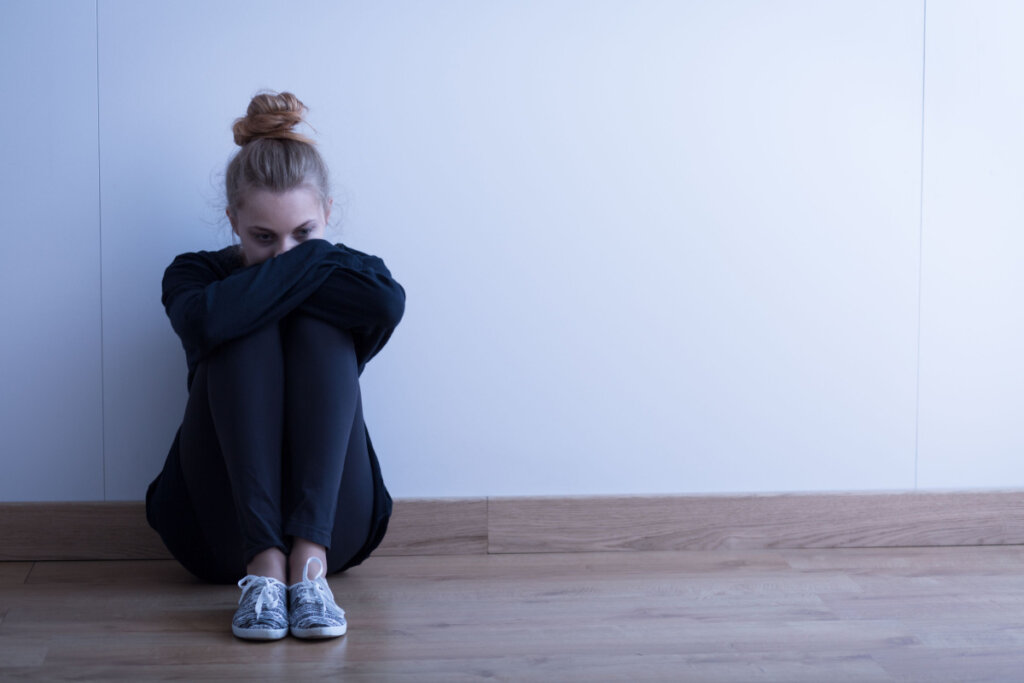A Personal Account of Anorexia

I was 37 kilos with my clothes on and 1.70 meters tall. The muscly physique I’d gained from doing martial arts five days a week had disappeared. Now, I ached simply from walking back from school. My ribs stuck out when I stepped into the shower. However, what was more important was that I’d failed four subjects. So, as soon as I got home, I’d go straight to my room to study. I’d hear my mother yelling “Okay, don’t eat, but I don’t want to see you lifting your head up from your books!”
Now, I see all the drama that could’ve been spared, all the times that I could’ve behaved reasonably. But, instead, I’d chosen to survive on breakfast alone. Every day, my stomach was roaring like a lion, but my throat closed up and I waited to eat until the next day, to see if my body would go into survival mode.

How did I get there?
Being a teen, I was rebelling against everything that made me cry when I was a child. However, the world kept making me cry. I knew I was often creating drama and throwing tantrums, but it was because I felt so frustrated that I couldn’t deal with everything that was going wrong. It was mishandled frustration.
I knew that my father shouldn’t have treated us badly just because he was having problems at work. I knew that my mother shouldn’t say that I was to blame for the arguments at home and for answering her back.
In the end, I just lost the desire to eat with my family. I preferred to skip meals and feel the contempt through my closed bedroom door. I only ended up crying anyway.
Hitting rock bottom
Everything began to fail. Everything that used to be no problem for me became impossible. I used to spend physics lessons passing notes to my friend. But then, the exams came and, of course, I failed. By the time I felt like maybe I ought to change, I’d failed even more subjects.
That’s when I started to survive just on breakfast every day. I cried every time I was alone. At school, I didn’t even raise my head, and when they asked me what was wrong with me, I said that I had an allergy, because my eyes were permanently swollen from crying. However, seeing myself getting thinner reinforced the way I was acting.
Deep down, I knew that, at some point, I’d be able to eat again, so I saw it as a kind of ‘go-ahead’ to continue restricting my food. But, my face became increasingly skull-like, and there came a point when the fact that my ribs stuck out wasn’t so pretty anymore. And yet, my throat still closed up every time I saw food.

Diagnosis and comeback from anorexia
Despite all this, I was lucky. Help came from my best friend. Even though she was basically as tortured as me, she saw me through all my tears and I poured out my heart to her. Another help was my physics teacher who, despite my repeated attempts at self-sabotage, never stopped telling me that I was smart enough to take the subject. I ended up agreeing with her.
Another help was the school psychologist. My mother took me to the counselor hoping, I think, to get official proof that I’d failed due to laziness. However, after an unsuccessful session in which the psychologist told me it was better that I attended my classes, she called me later to do a solo evaluation.
With no one yelling in my ear that I was lazy and selfish, I understood that not only those who want to have a body similar to those paraded on the catwalks suffer from anorexia. I learned that I wasn’t doing things right, but there were some doing far worse. I found, in the midst of all my tears, the strength to carry on through the storm.
Have you ever been told that you should be in charge of your own life? Well, there are periods in your life when you just can’t be. Anorexia is like that. Like all rebellions, it’s full of pain, but there’ll always be someone to lend a hand when you feel like you just can’t eat. Finally, if anyone ever manages to convince you that you’re worthless, remember that your anger is telling you otherwise.
I was 37 kilos with my clothes on and 1.70 meters tall. The muscly physique I’d gained from doing martial arts five days a week had disappeared. Now, I ached simply from walking back from school. My ribs stuck out when I stepped into the shower. However, what was more important was that I’d failed four subjects. So, as soon as I got home, I’d go straight to my room to study. I’d hear my mother yelling “Okay, don’t eat, but I don’t want to see you lifting your head up from your books!”
Now, I see all the drama that could’ve been spared, all the times that I could’ve behaved reasonably. But, instead, I’d chosen to survive on breakfast alone. Every day, my stomach was roaring like a lion, but my throat closed up and I waited to eat until the next day, to see if my body would go into survival mode.

How did I get there?
Being a teen, I was rebelling against everything that made me cry when I was a child. However, the world kept making me cry. I knew I was often creating drama and throwing tantrums, but it was because I felt so frustrated that I couldn’t deal with everything that was going wrong. It was mishandled frustration.
I knew that my father shouldn’t have treated us badly just because he was having problems at work. I knew that my mother shouldn’t say that I was to blame for the arguments at home and for answering her back.
In the end, I just lost the desire to eat with my family. I preferred to skip meals and feel the contempt through my closed bedroom door. I only ended up crying anyway.
Hitting rock bottom
Everything began to fail. Everything that used to be no problem for me became impossible. I used to spend physics lessons passing notes to my friend. But then, the exams came and, of course, I failed. By the time I felt like maybe I ought to change, I’d failed even more subjects.
That’s when I started to survive just on breakfast every day. I cried every time I was alone. At school, I didn’t even raise my head, and when they asked me what was wrong with me, I said that I had an allergy, because my eyes were permanently swollen from crying. However, seeing myself getting thinner reinforced the way I was acting.
Deep down, I knew that, at some point, I’d be able to eat again, so I saw it as a kind of ‘go-ahead’ to continue restricting my food. But, my face became increasingly skull-like, and there came a point when the fact that my ribs stuck out wasn’t so pretty anymore. And yet, my throat still closed up every time I saw food.

Diagnosis and comeback from anorexia
Despite all this, I was lucky. Help came from my best friend. Even though she was basically as tortured as me, she saw me through all my tears and I poured out my heart to her. Another help was my physics teacher who, despite my repeated attempts at self-sabotage, never stopped telling me that I was smart enough to take the subject. I ended up agreeing with her.
Another help was the school psychologist. My mother took me to the counselor hoping, I think, to get official proof that I’d failed due to laziness. However, after an unsuccessful session in which the psychologist told me it was better that I attended my classes, she called me later to do a solo evaluation.
With no one yelling in my ear that I was lazy and selfish, I understood that not only those who want to have a body similar to those paraded on the catwalks suffer from anorexia. I learned that I wasn’t doing things right, but there were some doing far worse. I found, in the midst of all my tears, the strength to carry on through the storm.
Have you ever been told that you should be in charge of your own life? Well, there are periods in your life when you just can’t be. Anorexia is like that. Like all rebellions, it’s full of pain, but there’ll always be someone to lend a hand when you feel like you just can’t eat. Finally, if anyone ever manages to convince you that you’re worthless, remember that your anger is telling you otherwise.
All cited sources were thoroughly reviewed by our team to ensure their quality, reliability, currency, and validity. The bibliography of this article was considered reliable and of academic or scientific accuracy.
- Acerete, D. M., Trabazo, R. L., & Ferri, N. L. (2013). Trastornos del comportamiento alimentario: Anorexia nerviosa y bulimia nerviosa. Protocolo AEPED. Capítulo, 7.
- Díez Hernández, I. (2005). La anorexia nerviosa y su entorno socio-familiar. La imagen corporal, entre la biología y la cultura: antropología de la alimentación, nutrición y salud). Zainak. Cuadernos de Antropología-Etnografía, (27), 141-147.
This text is provided for informational purposes only and does not replace consultation with a professional. If in doubt, consult your specialist.







